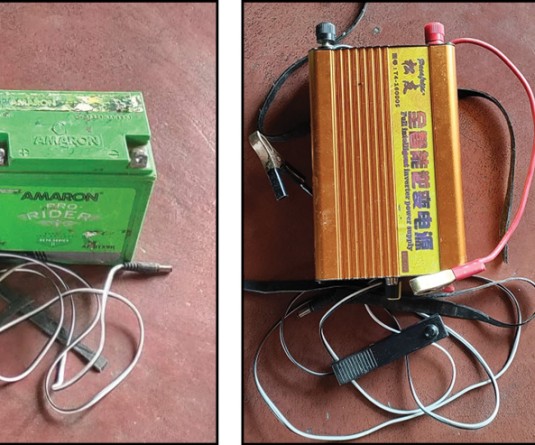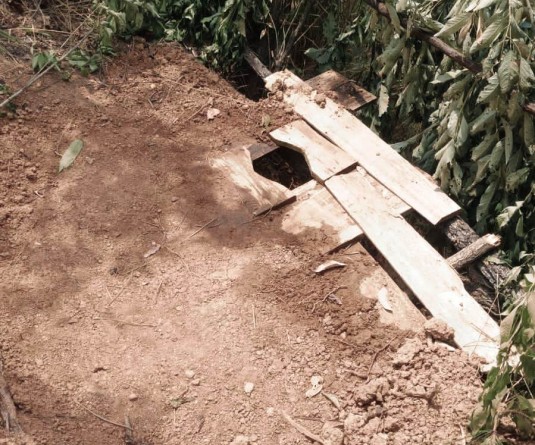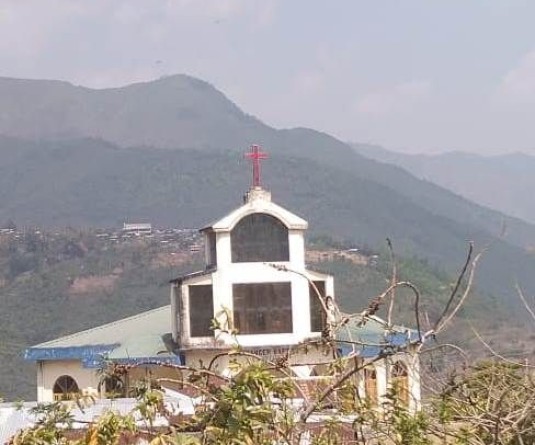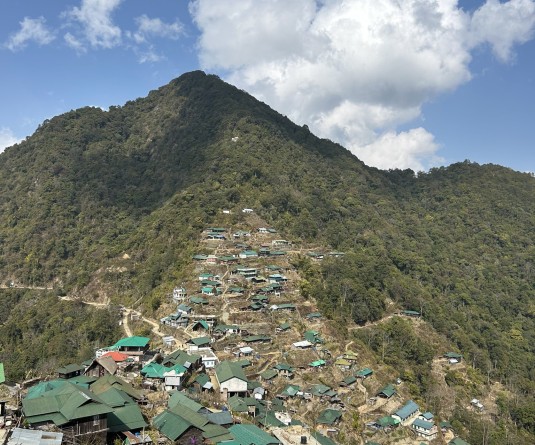An old man playing a traditional musical instrument. (Photo Courtesy: Isaac Inkah)
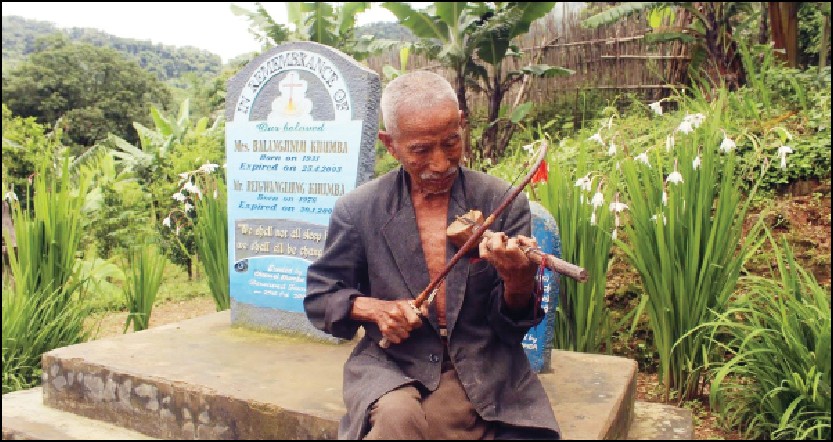
According to the UN Permanent Forum on Indigenous Issues (UNPFII), indigenous languages “represent complex systems of knowledge and communication and should be recognized as a strategic national resource for development, peace building and reconciliation.
In 2016, UNPFII recorded that some 6,700 indigenous languages were spoken around the world of which 40 percent were in danger of disappearing.
Pfokrelo Kapesa
Dimapur | January 27
There is more to language than being a functional medium of conversing. In language, there are history, culture, knowledge and value systems transmitted from one generation to the other.
It also defines identity and all the more so for indigenous peoples, whose rich oral folklore are on the verge of disappearing as much for a lack of native script as for getting caught in a web of ‘modernity’.
The disappearance of indigenous language is something to be concerned because along with it, indigenous culture and knowledge will also disappear.
To encourage urgent actions to preserve, revitalise and promote, the UN has declared 2019 as the Year of Indigenous Language (IY2019).
Coinciding with the UN declaration, The Morung Express will feature a series of stories based on indigenous languages. This series will explore the significance of language as a reservoir of knowledge, history and culture and as a resource for development, peace and rights.
In this introductory part of the series is featured Isaac Inkah, a young Naga writer, who writes in the Inpui Naga language/dialect.
An Inpui writer’s quest to preserve
An Inpui Naga by birth, 29 year-old Isaac has made it his life’s work to document and preserve the oral traditions of his native tongue.
He writes in Inpui but some of his works have been translated into English with fifteen of his poems converted to songs already.
The quest started early on in life, beginning in his teens writing songs, which transformed into what he is doing today.
Raising awareness among the youth on the “erosion of Naga identity and cultural decadence” is at the core of his writings with folklore, environment, and youth as the recurring themes.
According to Isaac, he seeks to “capture the stories of the past and connect it to the present” through his works.
‘Write it down... when we can remember’
Speaking to The Morung Express, Isaac recounted that it was his mother and her friends who inspired him to write, to write about the stories and songs and save it for posterity.
“Their generation is the last repository of our songs, stories and dances”, he lamented and added that “if we don’t document or record it now, we may lose it forever”.
In one of his poem simply titled- Write it down, an elderly person urges a young person to write, “word by word, story by story, of the winds, and the rivers, and the mountains, even the mistakes” lest it gets lost forever. It warns of irretrievably losing something as it ends, “you will long for us, when we are gone”.
Through this poem, Isaac seeks to raise awareness on the danger of losing native identity and the need to preserve and record indigenous knowledge, culture, and traditions.
Why write in Inpui & not English?
There are many who write in English while many indigenous languages are endangered or on the verge of extinction. The only way to revive our language is to write in it and about it.
Isaac explained that it has not been an easy journey. “It is hard to engage as majority of the youth are educated in English medium with little or no exposure to indigenous literature”.
What keeps him going?
His works have touched the lives of different people in different ways. Some thanked him “for giving them hope, others for inspiring them to think on social issues in a different way” and still there are others who “seek solace in the verses for various reasons”.
While people find hope, solace and inspiration in the works he do, this made him want to be a better person and writer. “It made me realize to be more responsible in what I am writing and speaking”, he added.
The journey so far
He was invited by the Sahitya Academy, Northeast Zone to speak under the ‘Writers under 37’ category at its annual gathering in 2018 which was held at Imphal.
Isaac has written extensively on the indigenous Inpui culture and tradition. His anthology of poems in Inpui “Thabaan Sanu Zingpha” (Moonlit Night), In Search of an Audience was published in 2017. Two more books are currently in line for publication: Karing Ngei 2018 (Written Orality) scheduled for publication this year, another poetry book is ready for publication.
A poet, a blogger, an avid photographer and youtuber, Isaac documents the Inpui culture and traditions in different ways. His works can be found at www.isaacnka.blogspot.com/AntrimwanbutKhwan and IsaacNka&The Tribal Show.


